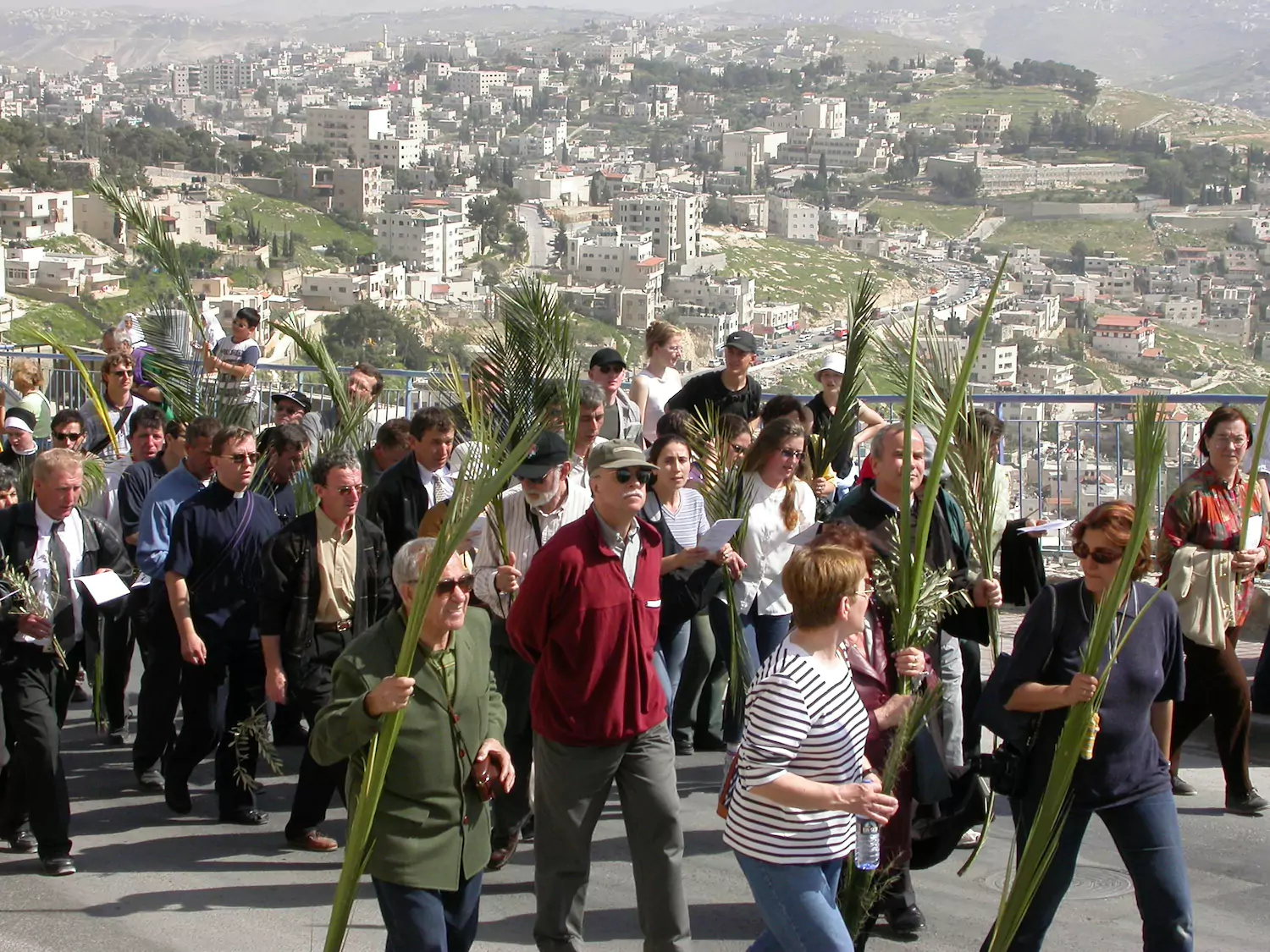Introduction to Passion Week
Passion week, or Holy week, as we sometimes call it, is undoubtedly the most important week in the life of the most important person who ever lived. All four New Testament Gospels climax with the final events in Jesus’ earthly life and ministry. At the pinnacle of the biblical Gospels is the gospel of the crucified, buried, and risen Christ.
In the three and a half years leading up to Passion week, Jesus taught about God’s coming kingdom in numerous ways. He insisted that people should exhibit kingdom virtues and seek first God’s kingdom and righteousness. He chose and trained twelve apostles to carry out their disciple-making mission to the nations. And he performed a wide array of startling messianic signs, demonstrating his authority over the created realm and even the supernatural.
Yet Jesus didn’t come as a triumphant ruler and conquering king. He came as a suffering Savior. The Old Testament made clear that sinful humanity cannot approach God apart from blood sacrifice. Yet in the end, the blood of sacrificial animals provided only temporary relief. What was required was the blood shed by Jesus, the Messiah and sacrificial lamb of God.
1. Palm Sunday
The Triumphal Entry
Sunday of Passion week finds Jesus entering Jerusalem, the holy city, in triumphant fashion. The crowds throng alongside his path into the city and acclaim him as the Davidic king: “Hosanna [meaning ‘God saves’] to the Son of David! Blessed is he who comes in the name of the Lord! Hosanna in the highest!” (Matt. 21:9).
Yet, while a king, Jesus comes humbly, riding into Jerusalem on a lowly donkey. The crowds, still harboring nationalistic ambitions, spread their coats along the road, as well as palm branches from the nearby city of Jericho, the “City of Palms” (Deut. 34:3; Judg. 1:16; 3:13), giving Jesus the “red carpet treatment.” John tells us that some had just recently seen Jesus’ greatest sign, the raising of Lazarus (John 12:9).
Yet while that miracle had stirred the crowd’s excited expectation, it further alarmed the authorities who envied Jesus because of his popular appeal. They tried to silence the crowd, and some Pharisees demanded that Jesus rebuke his disciples. Jesus trenchantly replies, “I tell you, if these were silent, the very stones would cry out” (Luke 19:40).
As Jesus approaches Jerusalem, he weeps over the city. Despite the crowds’ waving of palm branches and kind words, Jesus laments that people didn’t truly understand that this was the time of Messiah’s visitation of the holy city. He envisions a coming day, only a few short decades into the future, when Jerusalem’s enemies would lay siege to the city and raze it, including its sanctuary, to the ground (Luke 19:41–44).
Teaching in the Temple
Later in the day, Jesus, per his custom, goes to the temple grounds where he teaches the people. When evening draws near, he returns to Bethany, a small town near Jerusalem, where he and his disciples lodge overnight.
Pastoral Implications
Palm Sunday highlights a tragic misunderstanding. People project onto Jesus their desire for a charismatic hero who leads them to an implausible victory over oppressive political forces. But paradoxically, Jesus chooses the diametrically opposite path. He comes as a humble servant because he knows that humanity needs substitutionary atonement, a blood sacrifice by the only one who could bring it, the sinless Son of God and Son of Man.
As those who are called to follows in Jesus’ footsteps, we, too, should take up our crosses daily and be prepared to suffer rejection by the world. The world still looks for glamorous celebrities and charismatic leaders. Yet humble disciples understand they must live lives of quiet faithfulness, seeking not fleeting fame but a lasting city (Heb. 11:10; 13:14), everlasting life in God’s presence.
©2024 Andreas Köstenberger. Used with permission.
Related
Passion Week Devo, Day 2: The Cursing of the Fig Tree and the Cleansing of the Temple
Passion Week Devo, Day 3: All You Can Do is Share the Gospel
Passion Week Devo, Day 4: Open People’s Eyes to Spiritual Warfare
Passion Week Devo, Day 5: Remembering the Lord’s Supper
Passion Week Devo, Day 6: What Jesus Accomplished on the Cross
About The Author

Andreas Köstenberger
Andreas Köstenberger is host at Oak Tree Cottage, a hospitality and coaching ministry for pastors, missionaries, and Christian leaders. He is also cofounder of Biblical Foundations and theologian in residence at Fellowship Raleigh.








